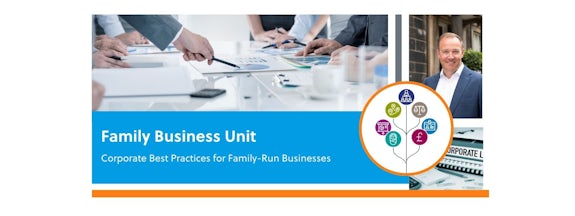
October 25, 2024

Family-run businesses are the backbone of economies, blending the strength of familial bonds with the dynamism of entrepreneurship. However, the unique nature of these enterprises calls for specialised legal considerations to ensure their longevity and success. In this blog, we consider a few essential corporate best practices tailored to family-run businesses, and offer some guidance to navigate the complex intersection of family and business.
1. Establishing a Solid Legal Foundation
One of the most common pitfalls in family businesses is the absence of clearly defined roles and responsibilities. Without a structured framework, conflicts can arise due to ambiguous decision-making processes and overlapping responsibilities. To thrive, family businesses need a robust legal framework. Begin by clearly defining the roles, responsibilities, and decision-making processes within the family and the business. Developing comprehensive governance documents, such as family constitutions or charters, can set the stage for effective collaboration and dispute resolution.
2. Succession Planning
You don’t need to be an HBO or Brian Cox fan to know that failure to clarify a succession plan is a significant pitfall that can jeopardize the future of a family business. Inadequate preparation for leadership transitions can lead to power struggles, disputes, and even the downfall of the business. A cornerstone for family-run businesses is a well-thought-out succession plan. Legal experts play a pivotal role in drafting these plans, addressing issues like leadership transition, ownership transfer, and estate planning. Ensuring a seamless transition from one generation to the next requires careful consideration of tax implications, valuation methodologies, and the preservation of family values.
3. Mixing Family and Business Finances
Blur the lines between personal and business finances, and you’re bound for trouble. Family businesses should maintain clear financial distinctions between personal assets and those of the business. Co-mingling funds can lead to financial instability, tax issues, and difficulties in tracking business performance accurately.
4. Employment Contracts and Policies
Family-run businesses often face challenges balancing professional expectations with personal relationships. Clearly defined employment contracts and policies are crucial for fostering a healthy work environment. When promotions and benefits are perceived as favouritism, it can negatively impact overall employee morale and cohesion. Family businesses should prioritize meritocracy and fairness to maintain a positive work environment. Establishing fair employment practices, including performance reviews and promotion criteria, mitigates potential conflicts and promotes transparency.
5. Confidentiality and Non-Disclosure Agreements
Protecting sensitive information is paramount in any business, and family-run enterprises are no exception. Implementing confidentiality and non-disclosure agreements can safeguard proprietary knowledge, trade secrets, and family business strategies. This legal safeguard is essential for maintaining a competitive edge while preserving family trust.
6. Dispute Resolution Mechanisms
Disagreements are inevitable, even within the tight-knit environment of family businesses. Avoiding conflict in the name of family unity can be detrimental to a business. Unresolved conflicts can fester and escalate, posing a greater threat over time. Establishing effective conflict resolution mechanisms, such as mediation or professional counselling, ensures that issues are addressed promptly and constructively.
Having a predetermined process in place can prevent family conflicts from escalating and damaging both personal relationships and the business itself.
7. Regular Legal Audits
Conducting regular legal audits is a proactive approach to identifying and mitigating potential risks. Legal professionals can review contracts, compliance measures, and corporate governance documents to ensure they align with evolving legal standards. Periodic assessments also provide an opportunity to update documents and policies to reflect changes in the family or business landscape.
8. Tax Planning and Compliance
Family-run businesses often face complex tax implications due to their intertwined personal and professional aspects. Engage with tax-planning experts can help optimize the business structure, manage tax liabilities, and ensure compliance with changing tax laws. This proactive approach can lead to significant cost savings and financial stability.
Family-run businesses are unique entities that require a delicate balance between familial ties and business acumen. By adhering to these corporate best practices, these enterprises can establish a solid foundation for longevity, growth, and harmonious collaboration. Legal guidance not only safeguards the interests of the business but can also foster the preservation of family values.
For more information please contact Findlay Anderson by email

Findlay is a Partner in our Corporate / Energy team. With over 20 years’ experience in the Energy / Oil & Gas industry and 14 years in international in-house “Head of Legal / General Counsel” positions, Findlay has a wealth of experience advising on a vast array of issues impacting business globally and locally.